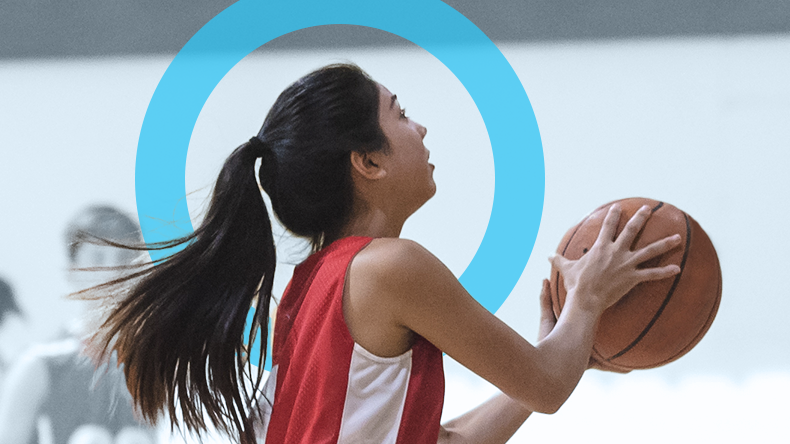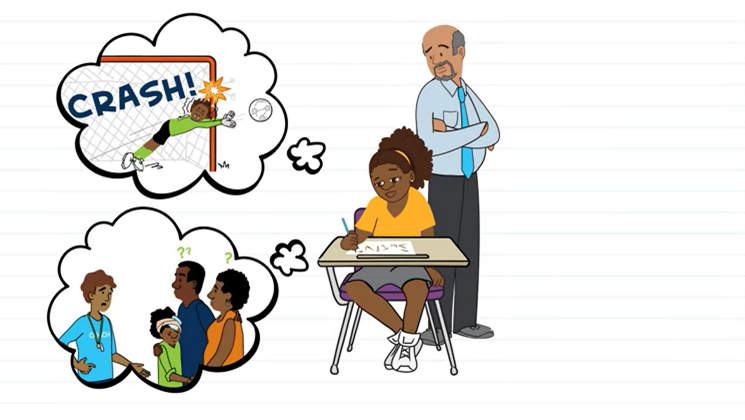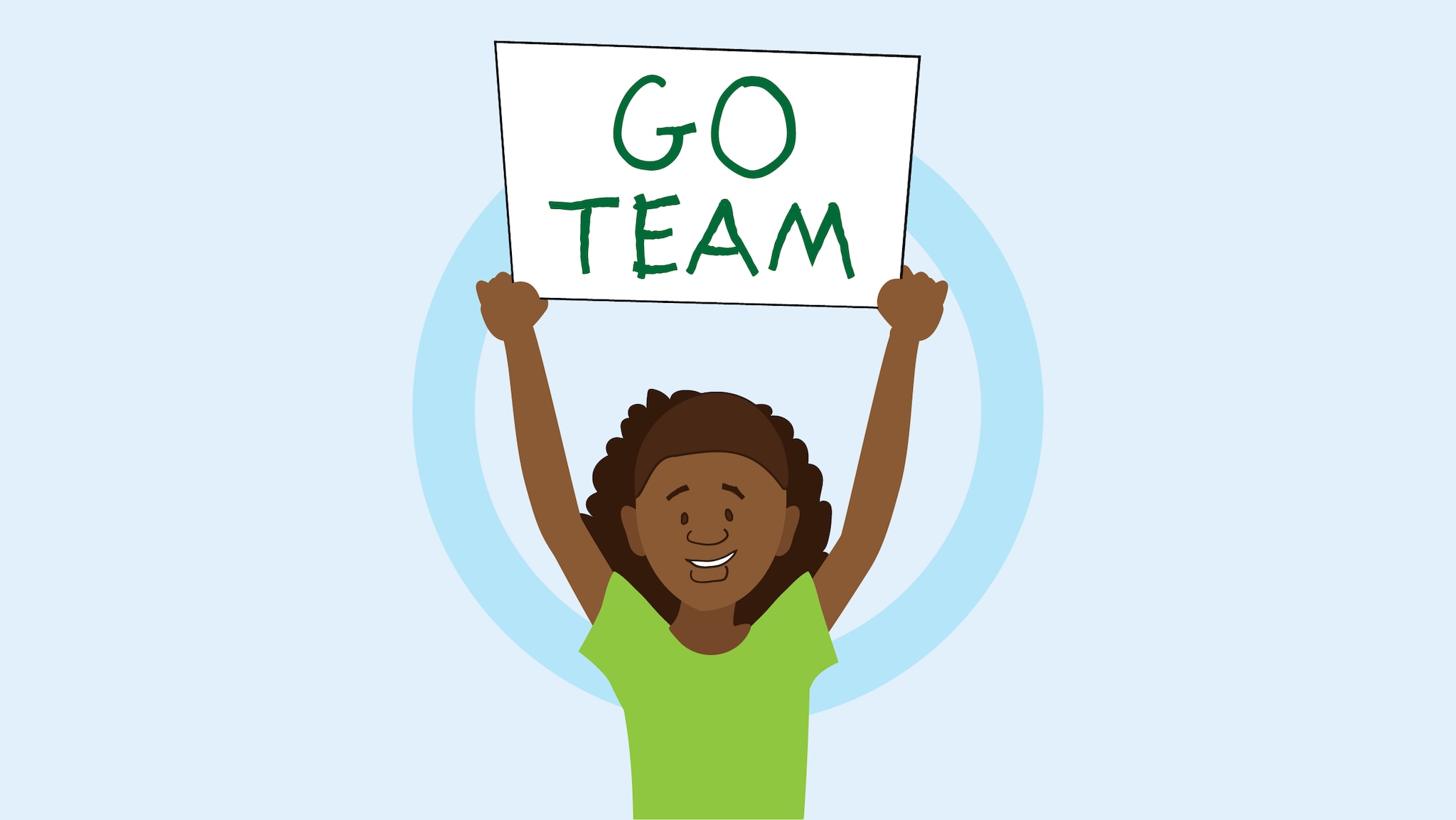Key points
- Remove the athlete from sports participation right away if a concussion is suspected.
- Check the athlete for concussion danger signs.
- Keep the athlete out of sports participation the day of the injury and until cleared by a healthcare provider.

Steps to take

If an athlete has any signs or symptoms of a concussion after a bump, blow, or jolt to the head or a hit to the body, you should:1
- Remove them from sports participation right away.
- Check them for concussion danger signs. An athlete experiencing concussion danger signs needs to go to the emergency department right away.
- Keep them out of sports participation the same day of the injury and until cleared by a healthcare provider.
Do not try to judge the severity of a concussion yourself. Only a healthcare provider should assess an athlete for a possible concussion. After an athlete with a possible concussion is removed from sports participation, the decision about return to sports is a medical decision that should be made by a healthcare provider.
Returning to sports too soon
Athletes who return to sports participation too soon—while their brain is still healing—have a greater chance of getting a repeat concussion.1 Repeat concussions can be very serious. They may cause permanent changes in the brain, affecting your child for a lifetime.
When to seek medical care
An athlete with a possible concussion needs to be seen by a healthcare provider. A healthcare provider can tell them if they have a concussion. Most athletes who have a concussion are seen by their regular doctor or in an emergency department and get to go home to recover. An athlete may need to stay in the hospital overnight if they have a moderate or severe brain injury.
What to tell the healthcare provider
Be sure to tell the athlete's healthcare provider if they are taking medications—prescription, over-the-counter medicines, or natural remedies. When possible, share the following information:
- Cause of the injury and force of the hit or blow to the head or body
- Any loss of consciousness (passed out/knocked out) and if so, for how long
- Any memory loss right after the injury
- Any seizures right after the injury
- Number of previous concussions (if any)
What to expect
Tests for concussion and brain injury
Healthcare providers check an athlete for a concussion by doing a physical exam and asking about their concussion symptoms. Your child may also need tests to help assess learning and memory skills, the ability to pay attention or concentrate, and how quickly they can think and solve problems. These tests can help the athlete's healthcare provider identify the effects of the concussion. Most athletes will not need to get a scan of their brain (CT or MRI) after a concussion.2
After their check up
If your athlete is diagnosed with a concussion, their healthcare provider should:
- Give you instructions to help with their recovery, including how to manage and monitor concussion symptoms
- Provide recovery tips and treatments based on their symptoms
Their healthcare provider should also talk with you about returning to school and the return-to-sports process. Returning to sports is a multi-step process that can take a week or more to complete.1
The return-to-sports process can happen at the same time as the return-to-school process.13 However, an athlete should be back to all regular non-sports activities (without accommodations or support) before they finish the return-to-sports protocol.13

Check in on how your child is feeling
An athlete may feel frustrated, sad, and even angry because they can't participate in usual activities like recreational activities or sports.4 They may also feel isolated from their friends and communities. These feelings are common after a concussion. Give them time to talk with and stay connected to friends. Listen and talk with them about these issues and offer your support and encouragement. Having support from family and friends can help with recovery.2
Make a follow up appointment with their healthcare provider
Be sure to schedule a follow up appointment with their regular healthcare provider so that they can check in on the athlete's recovery. You may consider using telemedicine and telehealth services if an athlete is unable to visit a healthcare provider in person. Through telemedicine or telehealth services, an athlete may get checked for concussion symptoms and get recovery tips without needing to travel to a medical office or hospital. Athletes who experience ongoing concussion symptoms for more than 2 to 4 weeks should see a specialist with experience in treating brain injuries.3
See the What To Do After a Concussion webpage for more information.
- Patricios JS, Schneider KJ, Dvorak J, et al. Consensus statement on concussion in sport: the 6th International Conference on Concussion in Sport–Amsterdam, October 2022. British Journal of Sports Medicine. 2023;57(11):695-711. doi:10.1136/bjsports-2023-106898
- Lumba-Brown A, Yeates KO, Sarmiento K, et al. Centers for Disease Control and Prevention guideline on the diagnosis and management of mild traumatic brain injury among children. JAMA Pediatr. 2018;172(11):e182853-e182853. doi:10.1001/jamapediatrics.2018.2853
- Reed N, Zemek R, Dawson J, et al. Living guideline for pediatric concussion care (PedsConcussion). 2022. https://pedsconcussion.com/
- Burns C, Jo J, Williams K, et al. Subclinical, long-term psychological symptoms following sport-related concussion: are athletes more depressed than we think? Brain Inj. Apr 4 2024:1-8. doi:10.1080/02699052.2024.2334352
